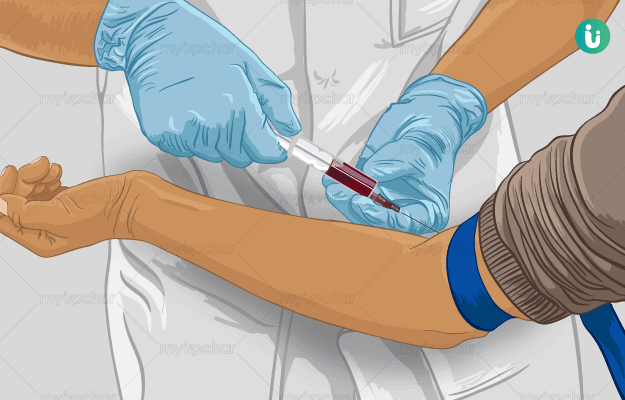What is PT (Prothrombin Time) test?
PT refers to prothrombin time test or pro time test. Prothrombin is a clotting factor synthesised by the liver with the help of vitamin K. Clotting is the process of congealing of blood at the site of injury by protein fibres and chemical factors present in it.
A cascade of reactions begins in blood when an injury damages a blood vessel. Blood clots at the location of the injury and a solid blockade forms at the point of damage, ceasing bleeding within a few seconds.
Time is an essential factor in the clotting process to prevent excess loss of blood from the body. Inadequate functioning of any of the clotting factors can interfere with the clotting process and put an individual at risk of excessive blood loss.
Prothrombin time test measures the time taken by a blood sample to clot. Typically, a blood sample should clot within seconds. This time could be higher if there are any pre-existing conditions the individual is diagnosed with. If an individual is on medications that affect the process of clotting, e.g., warfarin, it can also increase clotting time.






























